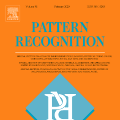This study introduces CCNETS (Causal Learning with Causal Cooperative Nets), a novel generative model-based classifier designed to tackle the challenge of generating data for imbalanced datasets in pattern recognition. CCNETS is uniquely crafted to emulate brain-like information processing and comprises three main components: Explainer, Producer, and Reasoner. Each component is designed to mimic specific brain functions, which aids in generating high-quality datasets and enhancing classification performance. The model is particularly focused on addressing the common and significant challenge of handling imbalanced datasets in machine learning. CCNETS's effectiveness is demonstrated through its application to a "fraud dataset," where normal transactions significantly outnumber fraudulent ones (99.83% vs. 0.17%). Traditional methods often struggle with such imbalances, leading to skewed performance metrics. However, CCNETS exhibits superior classification ability, as evidenced by its performance metrics. Specifically, it achieved an F1-score of 0.7992, outperforming traditional models like Autoencoders and Multi-layer Perceptrons (MLP) in the same context. This performance indicates CCNETS's proficiency in more accurately distinguishing between normal and fraudulent patterns. The innovative structure of CCNETS enhances the coherence between generative and classification models, helping to overcome the limitations of pattern recognition that rely solely on generative models. This study emphasizes CCNETS's potential in diverse applications, especially where quality data generation and pattern recognition are key. It proves effective in machine learning, particularly for imbalanced datasets. CCNETS overcomes current challenges in these datasets and advances machine learning with brain-inspired approaches.
翻译:暂无翻译



